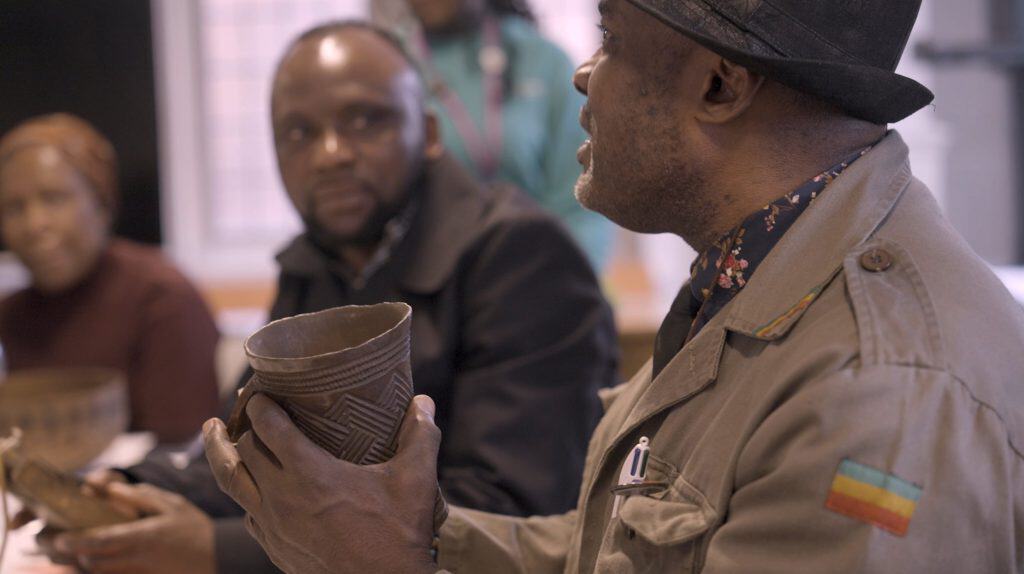Reimagining meanings
Co-curatorship and decolonising methods
Guest article by Emma Banister, Director Methods@Manchester
African diaspora communities were given an opportunity to contribute to vital work aimed at developing new understandings of the Museum’s African collections at a unique event organised by methods@manchester and Manchester Museum.
Subverting the familiar request of ‘please do not touch the exhibits’, Manchester Museum’s Curator of Living Cultures, Njabulo Chipangura, encouraged attendees to handle objects and share their own experiences of them.
These African objects, generally seized within a colonial context and often with violence, are usually held in stores concealed from public view. Herein lies the challenge – how to engage with and exhibit African history, yet in ways that are honest, respectful and true to the knowledge and meanings of people’s lived experiences.
The event was designed to support the Museum’s changing approach to narrating the past, and to reinforce how important local communities are to developing understandings and approaches to decolonisation.
It was particularly fitting this workshop was held in Manchester, next door to the site of the 1945 Pan African Congress, widely celebrated as a turning point in the journey of African nations to freedom from colonial powers. This poignant connection was pointed out by one attendee while discussing the considerable challenge ahead for a museum committed to decolonising their exhibitions.
With input from people from the Democratic Republic of Congo, Malawi, Zimbabwe and Nigeria, the objects literally came to life as people shared feelings, ritual practices and stories.
For many objects, their meanings emerge through experiences or knowledge about their use, hence the terminology of ‘living cultures’. Sometimes recounting these stories and uses drew excitement and laughter but other reflections warranted a serious tone and quiet contemplation.
